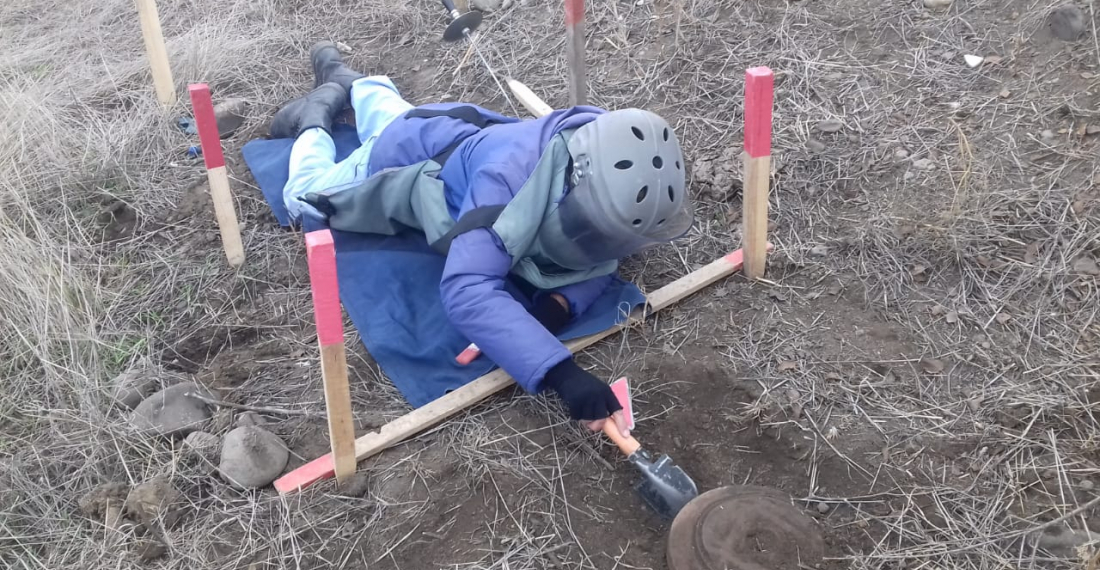In light of the clean-up effort of the territories taken by Azerbaijan in the 27 September – 10 November war with Armenia, Azerbaijani President Ilham Aliyev has expressed a need to bolster the country’s demining capabilities. Referring to demining as the country’s main task in the restoration of the acquired territories, he has ordered the reorganisation and strengthening of the Azerbaijani National Agency for Mine Action (ANAMA).
In a video conference today (6 January), on ‘the results of 2020’, the President stated:
“With regard to demining, I think we need to greatly strengthen this area. Because, according to the information given to me, at present the body dealing with this issue does not have any state status. ANAMA does not have state status, it is an ordinary agency. It has virtually no agency-specific powers in the public administration structure. This is a body that was once part of a commission. Therefore, I have instructed to reorganisation of this body in the coming days.”
He suggested that ANAMA could merge with the Azerbaijani Agency for Rehabilitation and Reconstruction, which he noted also presently has no formal state status. Aliyev expressed that the 560 people currently working for ANAMA would not be enough to tackle the enormity of the clear up efforts, calling for a new facility equipped with the latest technology. The president warned against making projections over how long the landmine decontamination process was likely to take.
Aliyev also expressed gratitude to foreign partners in the demining process. He thanked and acknowledged both the 130-person Turkish delegation of deminers – who are training Azerbaijani deminers as well clearing areas themselves – and the group of Russian sappers, who have started work on the territory.
Alongside demining, the president stated the need for a unified approach to the rehabilitation of towns and villages in the reclaimed territories. Amongst other things, he discussed urban planning and agricultural development, indicating that first a full assessment of damages needed to be conducted. The Azerbaijani Minister of Finance, Samir Sharifov, confirmed that a state budget of 2.2. billion Azerbaijani Manats (~€1.06bn) was approved for the “targeted rehabilitation, reconstruction, as well as the reintegration of the region into the Azerbaijani economy”.
The full text of the conference is available in Azerbaijani on Azertag.







